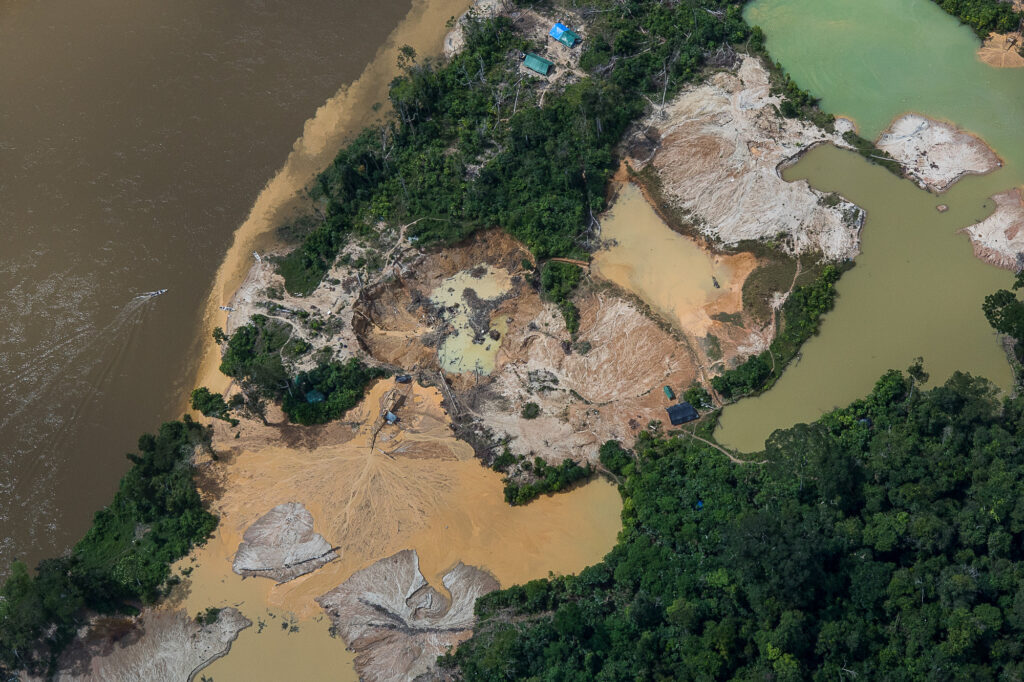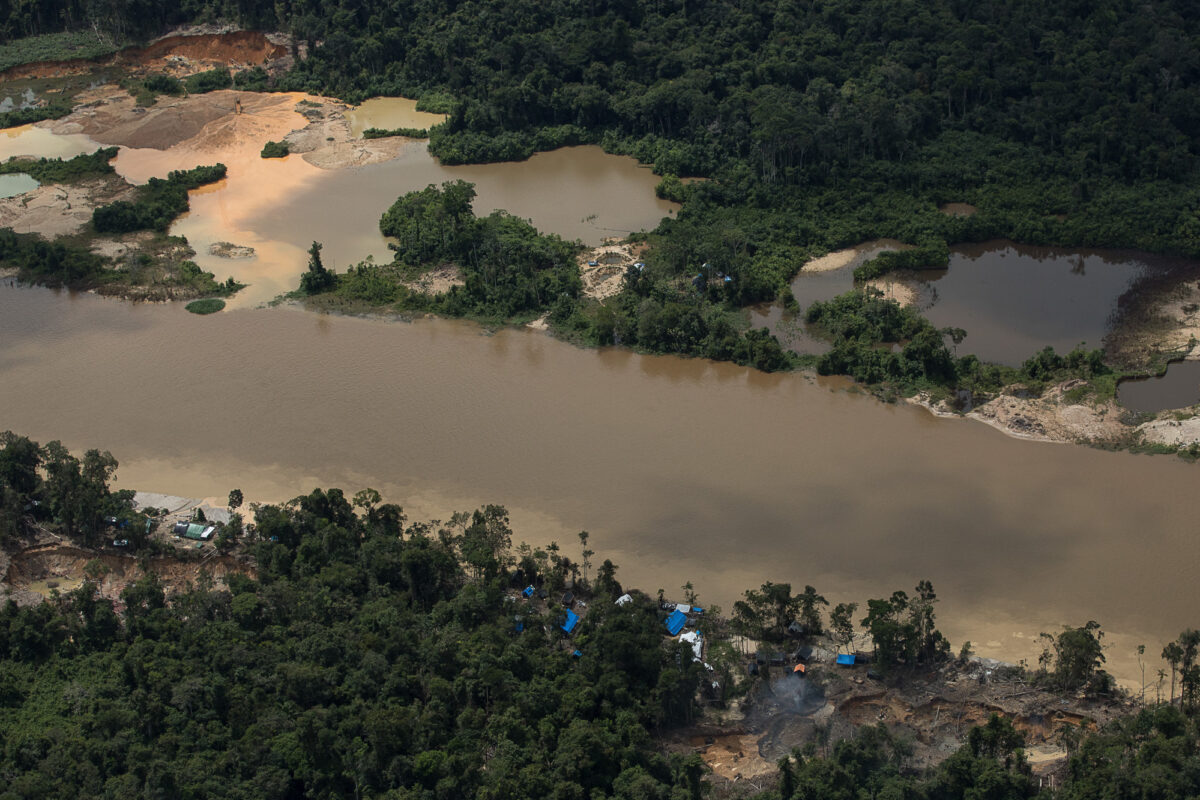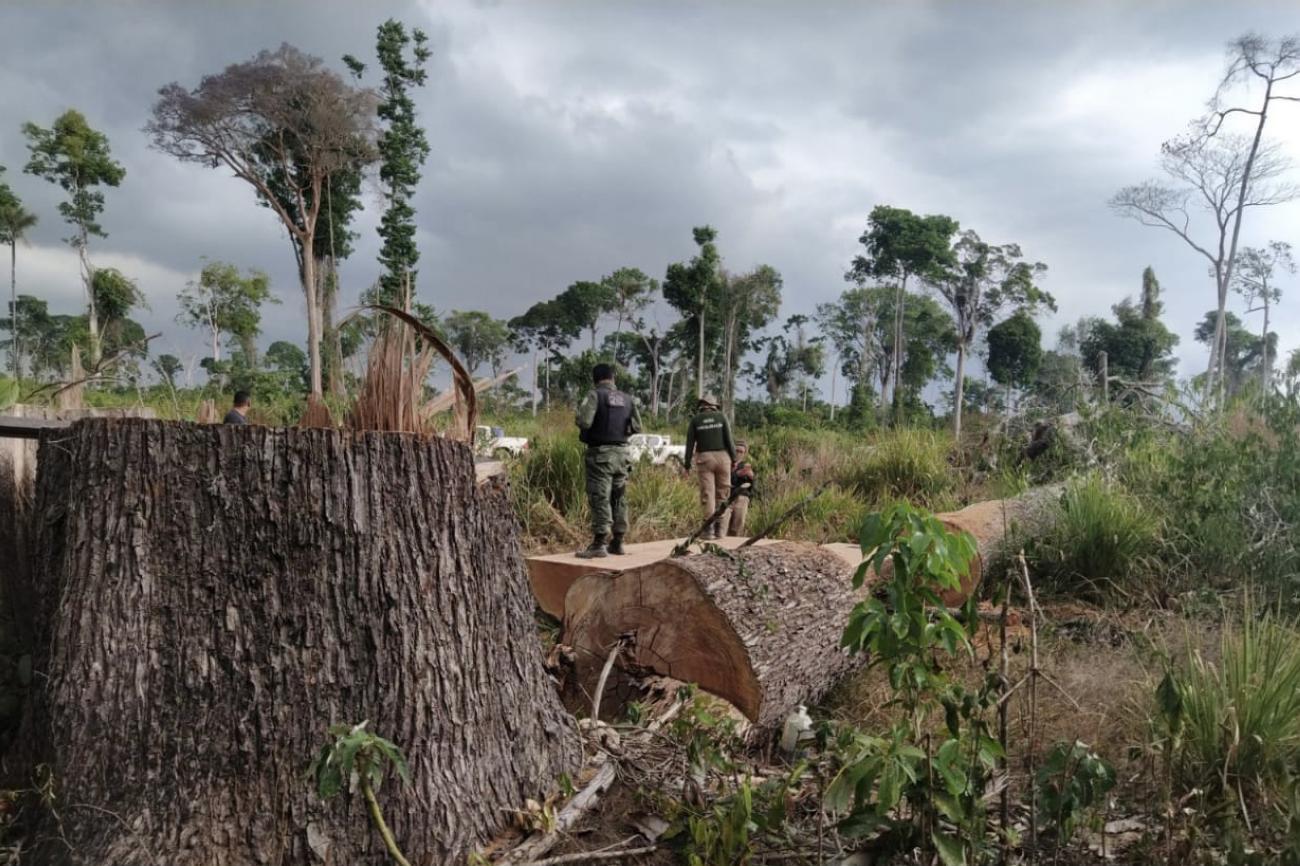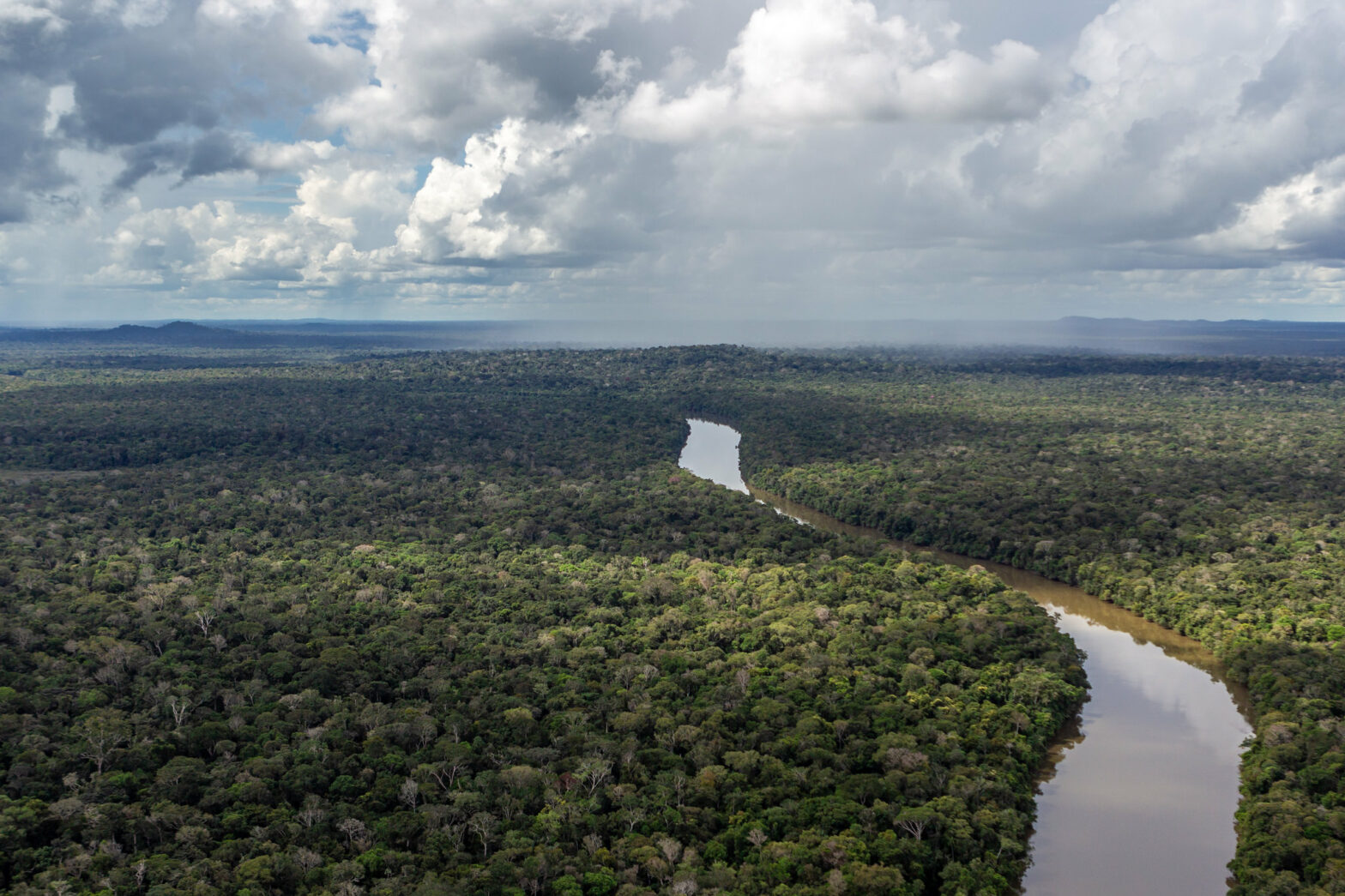Proposals allow for deforestation and construction projects in river and stream courses to irrigate crops and sustain farm animals. These changes can lead to an increase in the already historic drought plaguing the country.
The Brazilian forest legislation, reformed nine years ago, is under threat by bills that allow deforestation and construction work in watercourses. Three proposals in the Chamber of Deputies – the lower house of Brazilian parliament – declare river and stream dams used for crop irrigation and drinking water reservoirs for farm animals in private properties as a public utility. One of the texts is being processed urgently.
According to an analysis carried out by civil society organizations, bills 2.294/2019, 2673/2021, and 2168/2021 can expand deforestation, harm energy generation, and increase scarcity and conflicts over water, reducing access to this vital resource for those downriver from the dams.
The so-called new Forest Code was enacted in 2012 and approved six years later by the Supreme Court (STF). The text provided amnesty for the recovery, previously required by law, of 410,000 km² of hectares in Permanent Preservation Areas (APPs) and Legal Reserves (RLs) deforested by 2008 on private lands. The amnestied area is equivalent to that of Paraguay or twice that of the state of Paraná.
“These projects, which seek to undermine the protection of native vegetation, were not allowed to prosper in 2012. The Agribusiness Caucus processes its priority agendas in different committees with similar texts and often simultaneously in both the Chamber and the Senate”, summarizes Maurício Guetta, legal advisor of the Instituto Socioambiental (ISA). This makes it difficult for environmental entities to monitor and debate projects.
According to current legislation, the vegetation of APPs must be preserved on slopes and hilltops, and the banks of springs, streams, and rivers. The ranges vary from 30 to 500 meters, depending on the width of the watercourse. The Legal Reserves are the minimum percentages of forest to be kept in rural properties, 80% in the Amazon, 35% in areas of transition between the Amazon and the Cerrado, and 20% in the rest of the country.
A study estimated that maintaining native vegetation on rural properties (including APPs and RLs) yields BRL 6 trillion annually in pollination, pest control, water supply, rain production, and soil maintenance.
A study published in 2019 in the journal Perspectives in Ecology and Conservation estimated that maintaining native vegetation on rural properties (including APPs and RLs) yields BRL 6 trillion annually in pollination, pest control, water supply, rain production, and soil maintenance. Deforestation can worsen these factors, altering the climate and rainfall. The calculation was based on a world average estimate, which quantified the ecosystem services of one hectare of tropical forest, which yields about US$5,382 per hectare annually.
One of the proposals, PL 2673 by federal deputy Zé Vítor (PL-MG) can be voted on in the plenary of the Chamber as a matter of urgency. The congressman defends agendas from the Triângulo Mineiro, a region affected by the current drought. Analysis by the Federal University of Uberlândia showed that there was only 2.4% of the original vegetation in the region in 2003. To justify the project, the congressman says that the focus is on reducing environmental licensing bureaucracy.
Urban areas are also threatened
The executive secretary of the Forest Code Observatory, Roberta del Giudice, highlights that the vegetation on the banks of urban streams and rivers is also threatened. In August, the Chamber approved a project for the occupation of these APPs to be defined by each municipality. According to her, the proposal has the potential to expand invasions and deforestation in areas of common interest to populations living in cities.
“The text regularizes occupation and deforestation in these locations until April 2021 and allows municipalities to define APP strips as they wish. The proposal also does not address improvements in the situation of needy populations, who usually inhabit these places. It mainly works to erase irregularities committed by those who have economic power”, he said.

In April of this year, the Superior Court of Justice (STJ) decided that vegetation recovery in urban APPs must respect the rules of the national forestry legislation and not those stipulated in the Urban Land Parceling Law, which requires only 15 meters of native vegetation preservations on riverbanks. The decision could be overturned if the federal law on APPs in urban areas is changed in Congress.
Another bill under consideration in the Chamber, PL 4648, changes the concept of “consolidated rural area” in forestry legislation. This change, in the view of the entities heard by InfoAmazonia, amnesties deforestation and other environmental crimes committed in APPs and RLs up to 2028. The measure would also open the door to more deforestation in all biomes.
“We face a political environment where everything can be approved. This is caused by an immediate mentality, which does not weigh historical facts or scientific knowledge about water supply and climate crises. Approval of these projects will harm rural and urban populations, rural production, and national and international agribusiness markets,” said Roberta del Giudice.
We face a political environment where everything can be approved. This is caused by an immediate mentality, which does not weigh historical facts or scientific knowledge about water supply and climate crises.
Roberta del Giudice, executive secretary of the Forest Code Observatory
While the so-called “cattle herd” of reforms tramples on the protection of native vegetation in Congress, strategic points of forest legislation have not yet been implemented. A balance from last December by the Climate Policy Initiative (CPI) and the Pontifical Catholic University of Rio de Janeiro pointed out that “eight years after its enactment, the Forest Code is far from being effectively implemented in all Brazilian states”. The analysis and validation of the Rural Environmental Registry (CAR) by the states are some of the main bottlenecks, including for the restoration of forests.
A requirement of federal legislation, the recovery of approximately 25 million hectares of forests by governments and the private sector by 2030 is also in its early stages. Economic and fiscal incentives for law enforcement have not yet been defined on a large scale and in the long term. The 2020/2021 Harvest Plan increases the credit limit by 10% for rural producers with a valid CAR.
“The regulation of the Forest Code depends on the priorities of the Agribusiness Parliamentary Front. Many other projects with setbacks may come on the agenda, and since the agribusiness caucus has a majority in Congress, they can go straight to the plenary, without public hearings and debate with society. It is a scenario of great risk for the socio-environmental field”, emphasized Maurício Guetta, from the Instituto Socioambiental (ISA).





